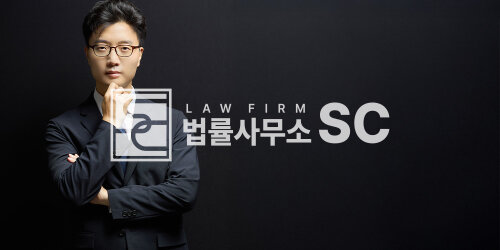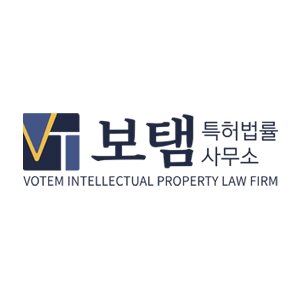Best Nonprofit & Charitable Organizations Lawyers in Seoul
Share your needs with us, get contacted by law firms.
Free. Takes 2 min.
List of the best lawyers in Seoul, South Korea
About Nonprofit & Charitable Organizations Law in Seoul, South Korea
Nonprofit and charitable organizations in Seoul, South Korea play a vital role in addressing societal issues through activities such as education, healthcare, environmental protection, and social welfare. These organizations operate under specific legal frameworks that mandate how they are established, governed, and regulated. Given the complexity and variability of these frameworks, legal guidance is often necessary to navigate the regulatory landscape effectively.
Why You May Need a Lawyer
Engaging a lawyer specializing in nonprofit and charitable organizations can be crucial for a variety of reasons. Common situations where legal help may be required include:
- Setting up a new nonprofit or charitable organization
- Ensuring compliance with legal and regulatory requirements
- Drafting and reviewing organizational bylaws and governing documents
- Handling tax exemption applications
- Advising on changes to corporate structure or mission
- Addressing issues related to fundraising and donor contributions
- Resolving disputes within the organization or with external entities
- Navigating employment and labor relations specific to the nonprofit sector
Local Laws Overview
The legal framework for nonprofit and charitable organizations in Seoul encompasses several key components:
- Registration and Incorporation: Organizations must be registered with the Provincial Office, complying with the Act on the Establishment and Operation of Public Interest Corporations.
- Taxation: Nonprofits can apply for tax-exempt status under the Corporate Tax Act but must adhere to strict guidelines regarding revenue generation and use.
- Governance: Laws dictate specific guidelines for board structure, fiduciary duties, and transparency to ensure accountability.
- Fundraising: Regulations govern solicitation and proper use of funds, including adherence to guidelines set by the Public Fundraising Act.
- Reporting: Regular reporting to the governing authorities is mandatory, involving financial statements, audit reports, and activity results.
Frequently Asked Questions
What is required to start a nonprofit organization in Seoul?
Starting a nonprofit requires registration with the relevant authorities, ensuring compliance with legal requirements like a defined mission statement, bylaws, and an establishment plan.
How can a nonprofit obtain tax-exempt status?
Nonprofits must apply for tax-exempt status through the National Tax Service, providing documentation to demonstrate their contributions to public welfare.
Are there specific regulations for fundraising activities?
Yes, fundraising activities are regulated under the Public Fundraising Act, which mandates transparency and appropriate use of collected funds.
What governance structure is required for a nonprofit?
Nonprofits must have a board of directors responsible for fiduciary duties, strategic direction, and ensuring compliance with all legal and regulatory obligations.
Can a nonprofit earn revenue from commercial activities?
While nonprofits can engage in revenue-generating activities, any profits must be reinvested into the organization's mission-driven initiatives.
What types of reports must a nonprofit submit annually?
Nonprofits are required to submit financial statements, audit reports, and annual activity reports to the appropriate regulating body.
Is it necessary to have a legal advisor on staff?
While not legally required, having access to legal advice from a qualified lawyer can be invaluable in navigating complex legal requirements effectively.
What are the consequences of not complying with nonprofit regulations?
Noncompliance can lead to penalties, loss of tax-exempt status, or even dissolution of the organization in severe cases.
How does a nonprofit protect its intellectual property?
Nonprofits can protect intellectual property through trademarks, copyrights, or patents, depending on the nature of the creations or services.
Can foreign nationals establish a nonprofit in Seoul?
Yes, foreign nationals can establish nonprofits; however, they must comply with additional requirements related to foreign entity participation and local operation standards.
Additional Resources
- Ministry of the Interior and Safety: Offers guidance on registration and operational standards.
- National Tax Service: Provides information on tax-exempt status and reporting.
- Korea NGO Council for Overseas Development Cooperation: Supports NGOs through networking and policy advocacy.
- Korean Bar Association: Can assist in finding legal experts specializing in nonprofit law.
Next Steps
If you require legal assistance in the realm of nonprofit and charitable organizations, consider the following steps:
- Research and select a lawyer or law firm with expertise in nonprofit law in South Korea.
- Prepare a clear list of objectives and questions you have regarding your specific legal needs.
- Schedule an initial consultation to discuss your needs and the potential legal strategies available.
- Review the proposal or engagement letter from your chosen legal advisor to ensure all terms are clear.
- Continuously engage with your lawyer to remain compliant with evolving laws and regulations.
Lawzana helps you find the best lawyers and law firms in Seoul through a curated and pre-screened list of qualified legal professionals. Our platform offers rankings and detailed profiles of attorneys and law firms, allowing you to compare based on practice areas, including Nonprofit & Charitable Organizations, experience, and client feedback.
Each profile includes a description of the firm's areas of practice, client reviews, team members and partners, year of establishment, spoken languages, office locations, contact information, social media presence, and any published articles or resources. Most firms on our platform speak English and are experienced in both local and international legal matters.
Get a quote from top-rated law firms in Seoul, South Korea — quickly, securely, and without unnecessary hassle.
Disclaimer:
The information provided on this page is for general informational purposes only and does not constitute legal advice. While we strive to ensure the accuracy and relevance of the content, legal information may change over time, and interpretations of the law can vary. You should always consult with a qualified legal professional for advice specific to your situation.
We disclaim all liability for actions taken or not taken based on the content of this page. If you believe any information is incorrect or outdated, please contact us, and we will review and update it where appropriate.















